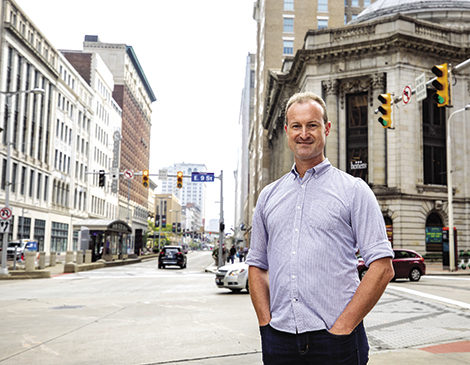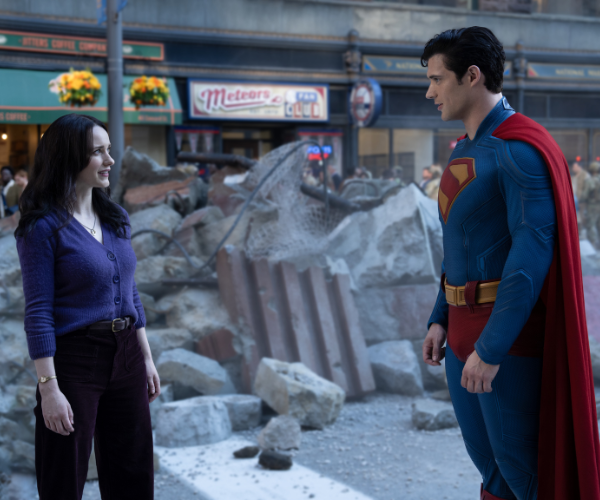In 2008, Bill Garvey’s life was upended. Like many people involved in the film industry at the time, Garvey lived in New York City, where he had plans to move in with his then-fiancee (now wife). On the cusp of their move, things changed however, as his fiancee’s mother’s health took a decline. Instead of welcoming her to New York City, Garvey packed his bags and headed to Cleveland. “Sometimes you just have to roll with what life throws at you,” Garvey says.
Now, 13 years and more than a dozen movies later, Garvey’s ready to usher in Cleveland’s next generation of film as the new president of the Greater Cleveland Film Commission. With over a decade of experience, Garvey has worked as a location manager in the film industry, working on films such as The Fate Of The Furious and Captain America: The Winter Soldier. Here, Garvey shares his thoughts on the future of Cleveland’s film scene and what his plans are to succeed.
ON HIS MAIN GOAL AS PRESIDENT. Workforce development is key. I want to make it so that when a movie comes here, we have a workforce that’s reflective of the population that lives here. These jobs are well-paying jobs that people can raise a family on. We want filmmakers and producers to look at Ohio. It’s all about pounding the pavement and getting people to look at Ohio because it’s not most producers’ first choice when it comes to making movies. We can look like any other city. Cleveland has stood in for New York City, Washington, D.C., and other cities.
ON HOW CLEVELAND CAN BECOME A MORE ATTRACTIVE FILMING DESTINATION. The tax incentive is the end-all be-all. Right now, we have a $40 million tax incentive for films in Ohio. Ours is set up similar to Georgia’s, except for that theirs has no cap. Last year during COVID, filmmakers spent $2.2 billion in Georgia because they have no tax incentive cap and also have studios to shoot in. One of my goals is to increase the incentive cap, because once you increase the cap, you provide incentive for studios to invest in the area. Once you have a stage, you have more work. It’s self-fulfilling. A studio also means you’ll be able to get TV shows, which can stabilize the industry.
ON HOW HE HAS PREPARED TO HIT THE GROUND RUNNING. As a location manager, I already have relationships with studios because I worked with them to help figure out movies. I’ve been here for a decade and have helped with over a dozen movies. When I talk to producers, I’m speaking their language and understand what their needs are. Every state has its own quirks and I’ve navigated that. I have relationships in city government and have worked with them on logistics on projects big and small. Part of the job is also advising on where to look for stuff, which I did all the time as a location manager. When you’re looking for a place that could serve as an evil lair, you must be creative about it.
ON HOW CLEVELAND’S FILM SCENE IS RECOVERING. It’s going to be a good fall. Location filming was basically shut down last year so there’s an explosion of content right now. We’ve got a bunch of high-profile projects coming here all at once starting with two coming in the fall. We have an opportunity to ramp up the business and get more people working. On the set of Wheat Germ [this summer], we had 450 people on set at once, all of whom were making money.




